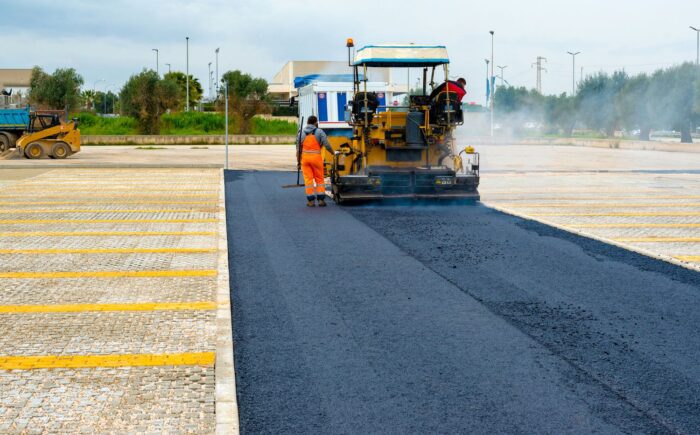Do you have stone and gravel pavement on your property? Many people appreciate the easy installation and affordability of gravel. But you might notice this material can develop ruts or sinkholes on its surface. It is also hard to maintain in the snowy weather and can make a mess when vehicle tires kick up dirt and dust.
Fortunately, if you want to make the switch to asphalt for this paved area, the transition is not too difficult. A paver can lay asphalt directly over existing stone and gravel pavement if needed. If this paving job interests you, read on to learn the steps to installing asphalt pavement over gravel on your commercial property.

Work with an Expert Paving Company
Before beginning this paving task, you should consult with a reputable paving company to evaluate the condition of the existing pavement. Visit the paving contractor’s website to learn details about their credentials and to review a gallery of past projects in order to ensure they are the best company to work with.
The pavers will check the grade of the pavement to ensure it has appropriate runoff. Skipping this step may mean water can accumulate in puddles on the asphalt. Then excess moisture can seep into porous asphalt and make it crack or form potholes.
In order to protect your new pavement, you should seek professional assistance for your project. Call Cooper Paving in Annapolis, MD at 410.263.0229 to get an accurate estimate for the cost of your paving project today.
Install Pavement Foundation
The paving contractor will not need to dig up undamaged gravel pavement before starting the process of laying asphalt. However, they will first need to install a foundation for the asphalt.
This sub-base establishes a stable surface for the asphalt and also protects the asphalt from freezing temperatures that could damage the pavement over time. The pavers will carefully smooth and compact the sub-base for an even and unbroken finish.
Lay and Maintain Asphalt Pavement
After checking and repairing any issues with the sub-base, the pavers will lay fresh asphalt over the area. Expert paving contractors have the proper equipment and training to achieve a smooth and durable final result.
Make sure your asphalt also features a seal coat. This refers to a protective layer that a paver can apply over your asphalt. It serves to shield the pavement from moisture, dirt, debris, and other external elements that could otherwise hurt the asphalt. You should reapply a seal coat every three to five years, depending on the traffic that the pavement receives.
You will also need to perform proper cleaning and maintenance of your asphalt in order to maximize its lifespan. This entails inspecting it regularly, removing stains, and repairing small cracks before they worsen. With adequate care, your asphalt can last for twenty years. Learn more about the asphalt paving process by calling your local paving company.
